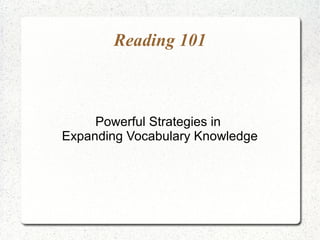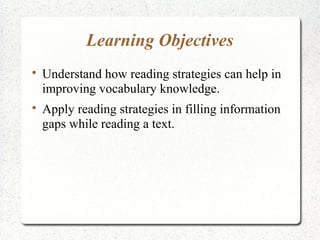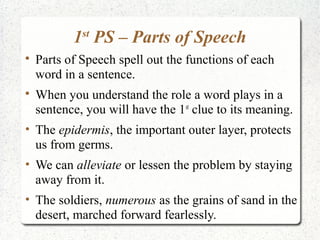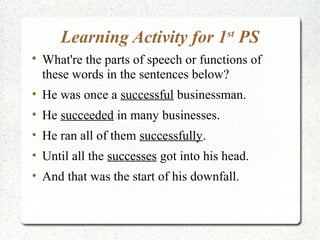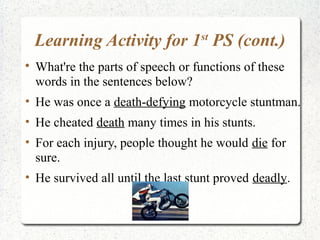The document discusses powerful reading strategies to improve vocabulary knowledge:
1) Understanding parts of speech provides clues to a word's meaning by identifying its function in a sentence.
2) Contextual clues from paragraphs and sentences also reveal word meanings.
3) Prefixes and suffixes allow readers to break words into meaningful parts or roots for definition.
